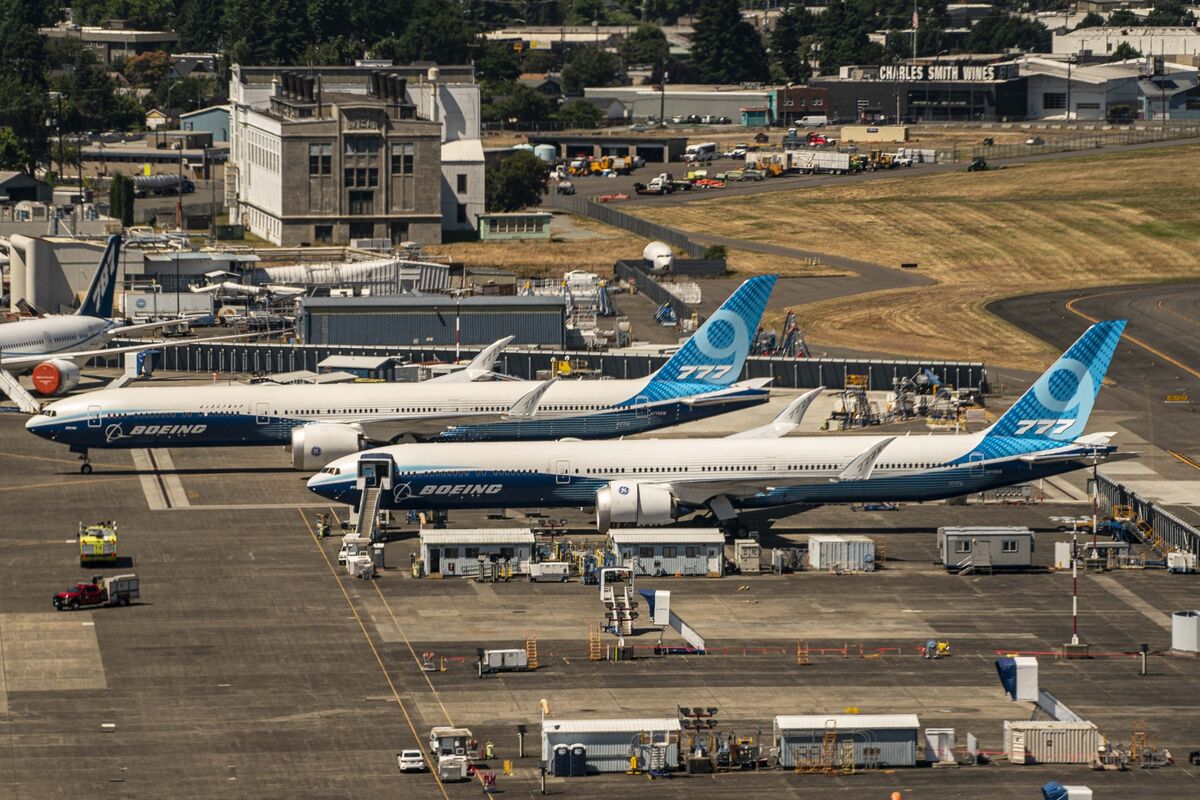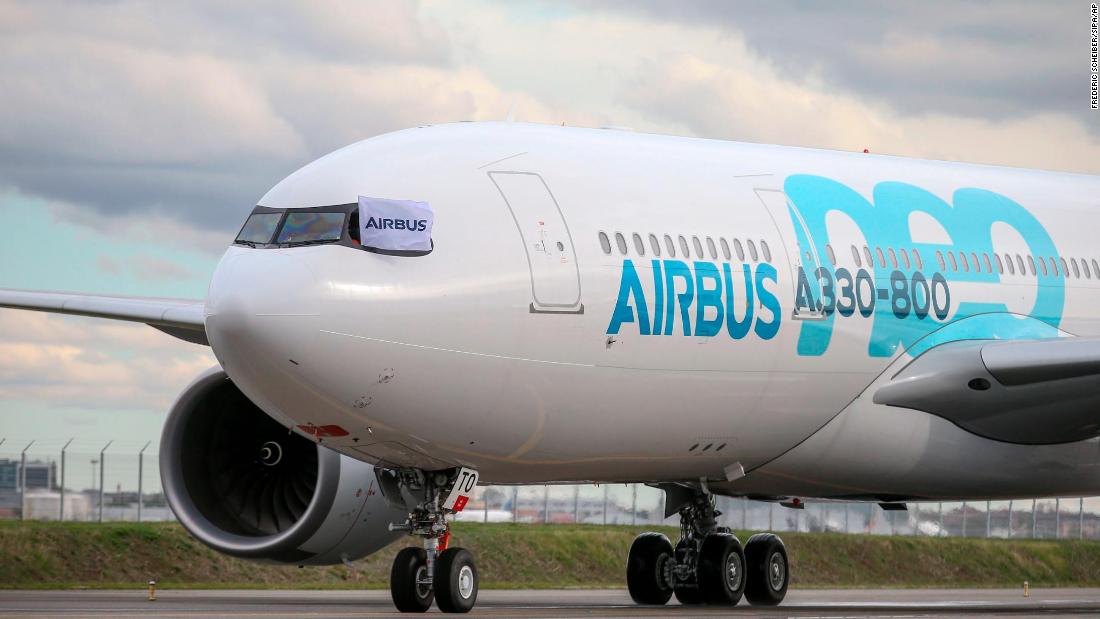US Airlines To Bear The Brunt Of Airbus Tariffs

Table of Contents
Increased Aircraft Costs and Reduced Profitability
The most immediate consequence of the Airbus tariffs is the substantial increase in aircraft pricing. This directly impacts US airlines' capital expenditure budgets, forcing them to allocate more funds to acquiring new Airbus planes or maintaining their existing fleets. Higher aircraft acquisition costs inevitably translate to reduced profitability and potentially lower shareholder returns, putting pressure on airlines to find ways to offset these increased expenses.
One of the most likely outcomes is that airlines will pass these increased costs onto consumers through higher airfares. This could lead to a decrease in air travel demand, particularly for price-sensitive travelers. The impact will not be uniform across all US airlines. Carriers with a larger existing Airbus fleet and significant future purchase plans will feel the pinch far more acutely than those with primarily Boeing aircraft.
- Increased maintenance costs: Tariffs on Airbus parts increase the cost of routine and unscheduled maintenance, further squeezing profit margins.
- Higher financing burdens: Securing financing for new aircraft becomes more expensive due to the increased upfront cost.
- Reduced investment in other areas: Airlines may need to curtail investments in other crucial areas like customer service improvements or technological upgrades to compensate for the higher aircraft costs.
Supply Chain Disruptions and Delays
Beyond the direct impact on aircraft pricing, the Airbus tariffs create significant supply chain disruptions. The tariffs on Airbus parts affect the timely delivery of essential components and spare parts, disrupting the already intricate and finely tuned supply chains of US airlines. Delays in receiving these vital parts can lead to grounded aircraft, extending maintenance schedules, and resulting in increased maintenance expenses.
This disruption can have cascading effects, leading to flight cancellations and delays, impacting customer satisfaction and damaging airline reputations. Further, the knock-on effects extend beyond the airlines themselves. The aviation industry relies on efficient air freight delivery for countless goods and services. Delays caused by these tariffs could disrupt these supply chains, impacting various sectors of the US economy.
- Increased lead times for repairs: Obtaining replacement parts takes longer, leading to prolonged aircraft downtime.
- Higher inventory holding costs: Airlines may need to increase their inventory of spare parts to mitigate potential delays, leading to increased warehousing and storage costs.
- Potential for operational disruptions: Delays and cancellations caused by part shortages can severely impact operational efficiency and negatively affect customer experience.
Competitive Implications for US Airlines and Boeing
The Airbus tariffs may inadvertently benefit Boeing, the major US aircraft manufacturer. By increasing the cost of Airbus aircraft, the tariffs potentially offer Boeing a competitive advantage in the US market. However, this benefit comes at a cost to the broader aviation industry. Increased prices overall could reduce overall demand, potentially leading to a contraction in the market.
Airlines that heavily rely on Airbus aircraft may need to re-evaluate their fleet strategies. This could involve accelerating the adoption of Boeing aircraft, shifting their purchasing habits, or negotiating better terms with Airbus to offset the tariff impact. The competitive landscape could shift dramatically, with the impact felt most strongly on specific routes and in certain market segments.
- Shift in market share: Boeing might see an increase in market share within the US airline market, at least in the short term.
- Potential for consolidation in the industry: Smaller airlines may struggle to cope with increased costs, potentially leading to mergers or acquisitions.
- Negotiating power of US airlines: Airlines will have more leverage when negotiating with both manufacturers as a result of the shifting dynamics.
Conclusion
The impact of Airbus tariffs on US airlines is multifaceted and potentially devastating. Increased aircraft costs, supply chain disruptions, and intensified competitive pressures will significantly challenge the profitability and operational efficiency of American carriers. Airlines need to adopt proactive strategies, including fleet diversification, rigorous cost management, and potentially lobbying for policy changes to mitigate the damaging effects of these tariffs. Understanding the full scope of these Airbus tariffs is crucial for all stakeholders in the US aviation industry. The long-term consequences could profoundly reshape the landscape of US air travel, making it essential to remain informed about the ongoing developments surrounding these Airbus tariffs and their impact on the industry. Staying informed about the evolving situation regarding Airbus tariffs is crucial for all involved.

Featured Posts
-
 Les Tuche 5 A La Memoire De
May 03, 2025
Les Tuche 5 A La Memoire De
May 03, 2025 -
 New Tariff Burden For Us Airlines From Airbus
May 03, 2025
New Tariff Burden For Us Airlines From Airbus
May 03, 2025 -
 School Desegregation Order Terminated A New Era For Schools
May 03, 2025
School Desegregation Order Terminated A New Era For Schools
May 03, 2025 -
 Trump Et Macron Au Vatican Un Echange Tendu Revele
May 03, 2025
Trump Et Macron Au Vatican Un Echange Tendu Revele
May 03, 2025 -
 Reform Uks Future Five Reasons For A Bleak Outlook
May 03, 2025
Reform Uks Future Five Reasons For A Bleak Outlook
May 03, 2025
